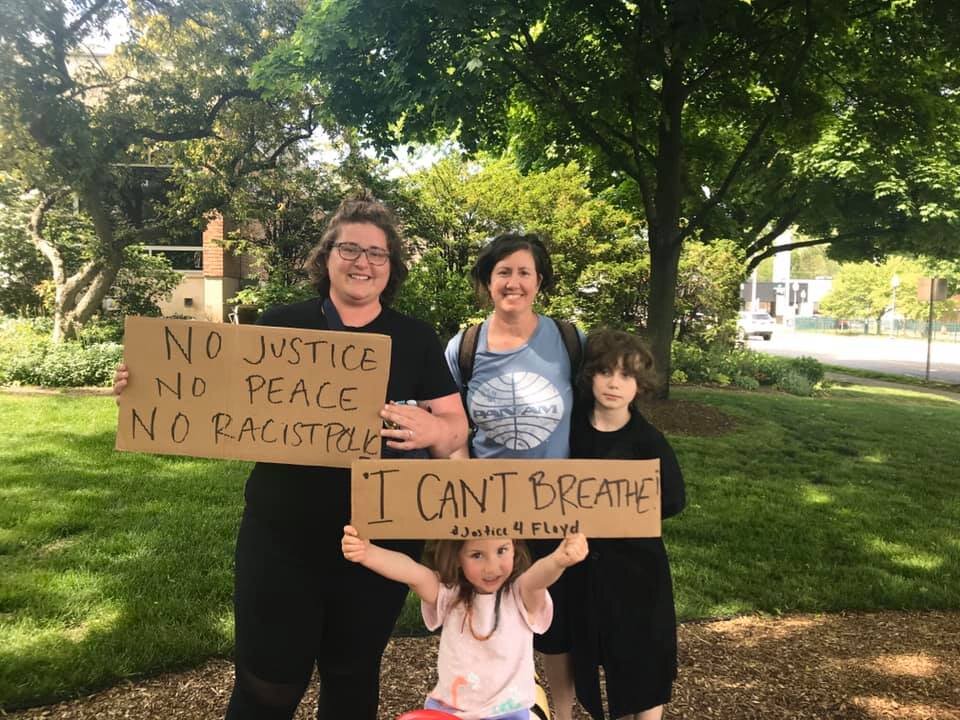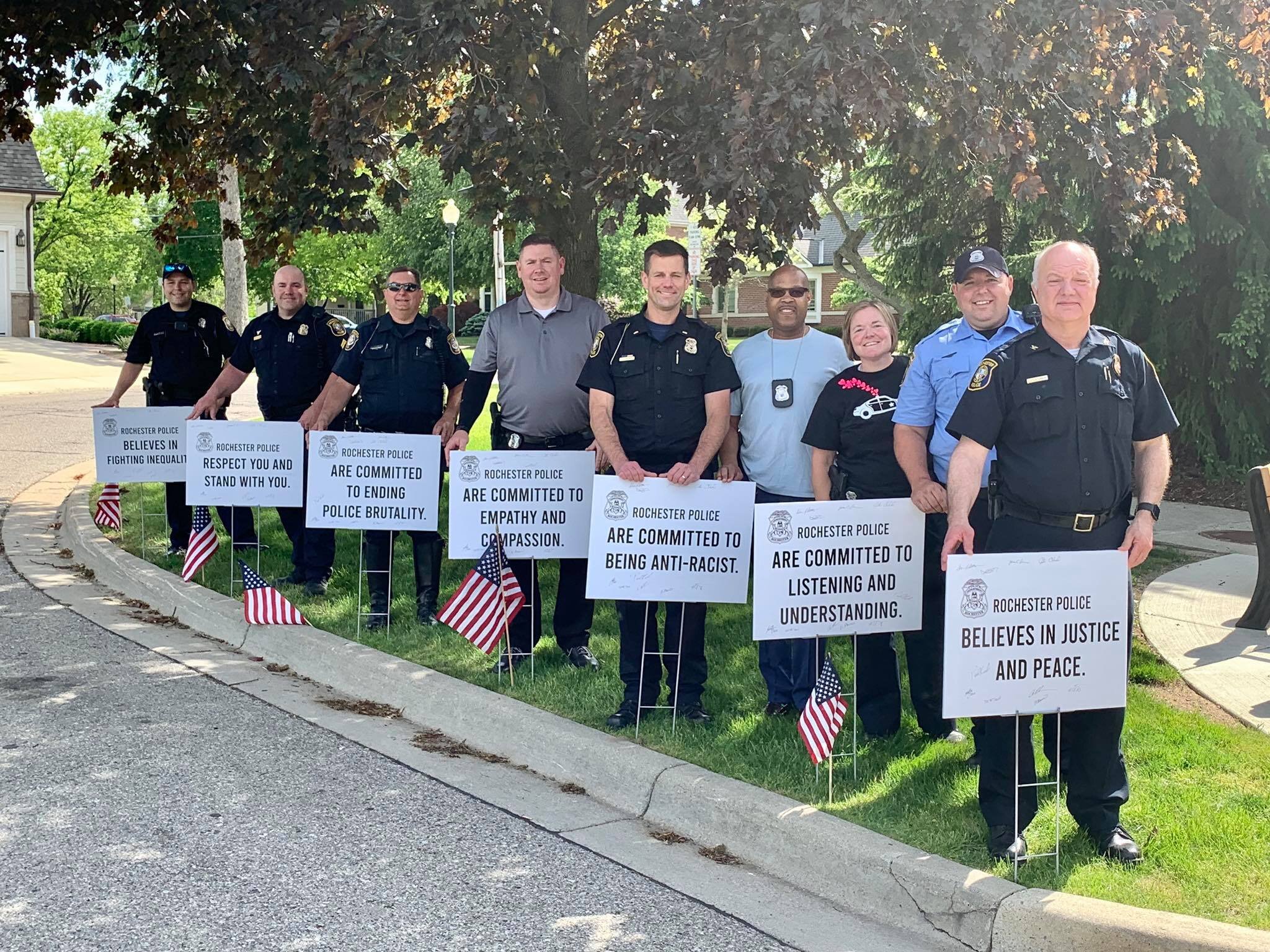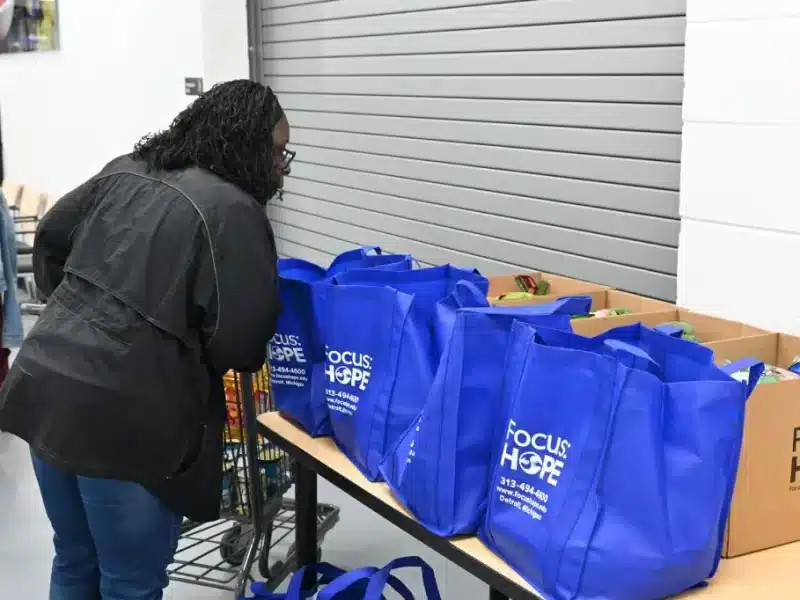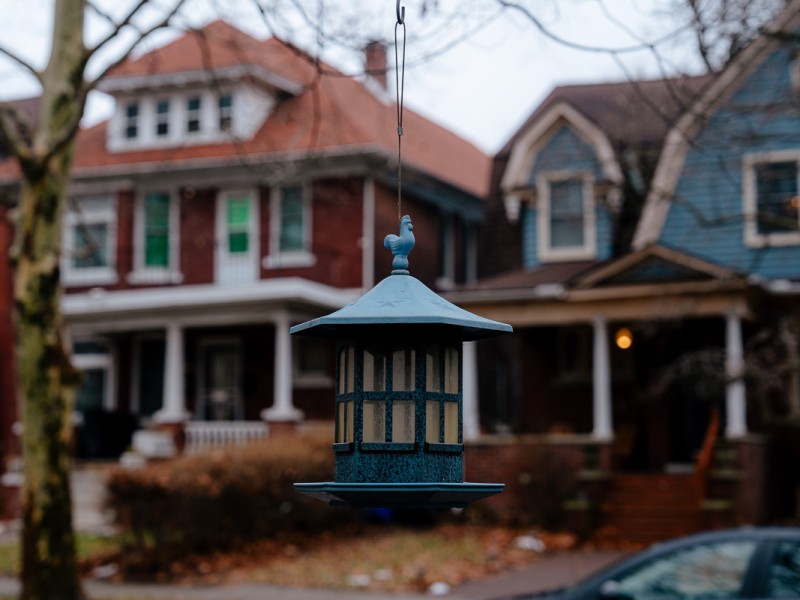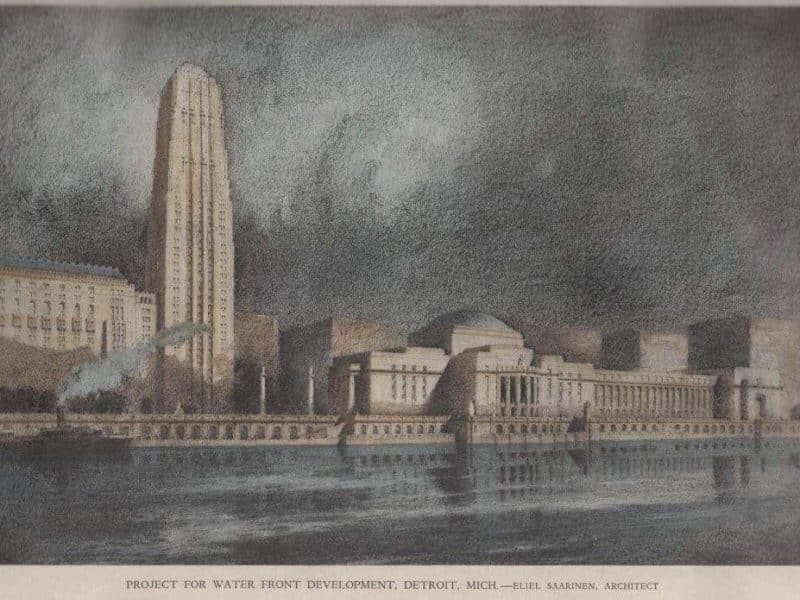We have a long way to go towards racial equity, Metro Detroit
Justice for George Floyd’s death and the end of a peaceful protest in the city are indeed causes for celebration. But we have a lot of work to do, Metro Detroit.
This story was originally published in Metromode.
Last night, Detroiters completed their sixth night of protesting in a victory lap after Detroit Police Chief James Craig announced there would be no curfew for peaceful protesters. The news came in the wake of what Craig called a “day of celebration” after the three bystanding officers in Minneapolis were charged with aiding and abetting second-degree manslaughter, and Derek Chauvin, who pressed his knee to the neck of George Floyd, suffocating him to death, had his charge elevated from third to second-degree murder.
“This is how you get justice,” protest leader Tristan Taylor told Detroit Free Press reporter and live streamer Mandi Wright. “You make your voice known and heard.” Justice for Floyd’s death and the end of a peaceful protest are indeed cause for celebration. But we have a long way to go, Metro Detroit.
Metro Detroit is the third-most segregated region in the nation and it is the Black population that bears most of the cost of that separation and inequity.
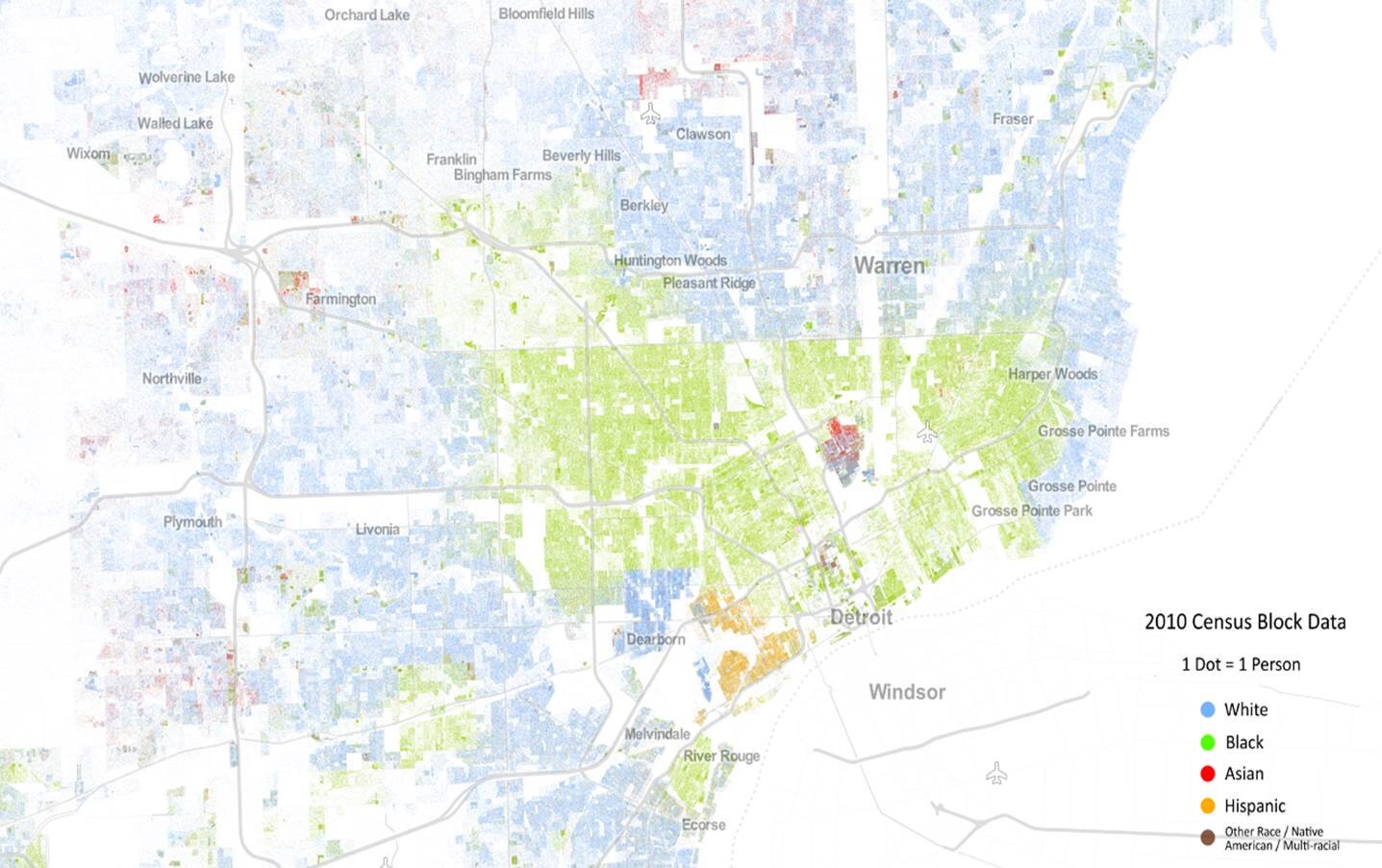
In 2018, when Wayne County announced the construction of a new jail at a cost well north of $500 million, the nonprofit advocacy law firm Detroit Justice Center launched a campaign to argue against its construction. Among the data included in their fact sheet: While 70% of the people in Wayne County’s jails were Black, they made up only 40% of the county’s general population.
In a 2016 survey conducted by Lansing-based EPIC-MRA for the Detroit Journalism Cooperative, one in three Black metro Detroiters felt they were unfairly stopped by police because of their race or ethnicity.
Whether the measure is education, or housing, or access to health care, or income, or business ownership, the gap between people of color and whites in Metro Detroit is stark.
For all the surveys and data available, perhaps no numbers have been more impactful this week than the 8 minutes and 46 seconds Minneapolis police officer Derek Chauvin spent forcing his knee to the throat of George Floyd, killing him.
While waves of protests occur throughout the nation, many white suburbanites — some for the first time — are asking themselves what they can do to combat police brutality. Some are placing yard signs supporting the Black Lives Matter movement (and learning about what that means for the first time and why no, “All Lives Matter” is not an appropriate counter-response. Others are planning and joining protests in their communities. Still, others are volunteering or donating to organizations that work toward racial equity. One mostly white suburban police department in the City of Rochester made a very public statement.
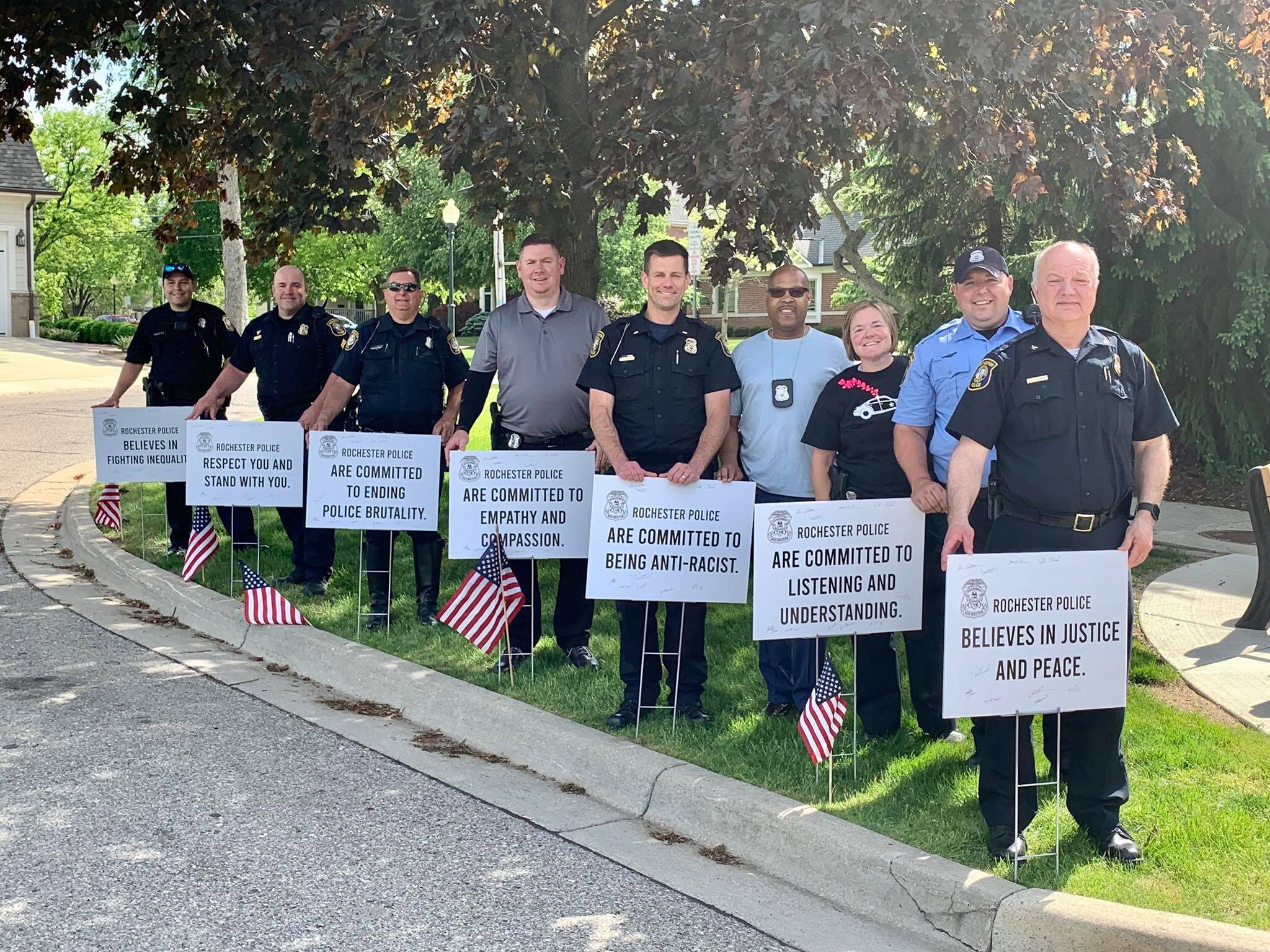
Protesters in suburbs as far-flung as Rochester, Royal Oak, and Dexter made their voices heard. In Warren, peaceful protesters marched on Van Dyke from 8 Mile Rd. to I- 696. Along the way, people passed out water in support, and many cars honked in encouragement.
“I felt very heartened to be part of this,” Warren resident and protester Bridget Quinn told Metromode. “Warren has a well-deserved, horrible reputation for racial profiling by a predominantly white police force. To see protests here, in a place inhospitable to people of color, with plenty of documented events of police brutality, feels incredibly important. The protesters remained peaceful and unified despite the presence of at least two white counter-protesters carrying assault rifles across the street.”
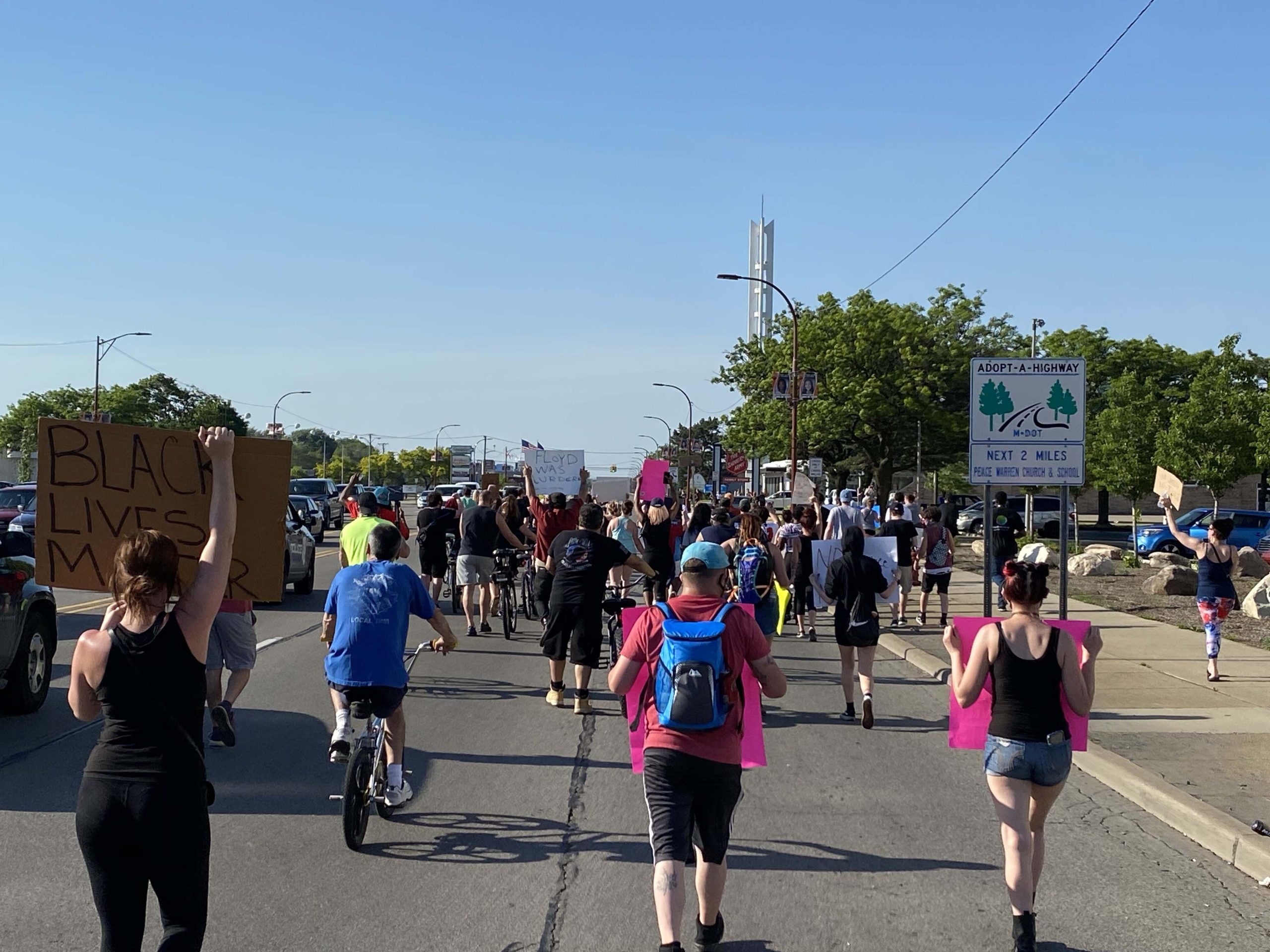
Now’s the time to step up, Metro Detroit, and find solutions to these egregious problems that have plagued us for so long.
While no means a definitive list, the following are some Metro Detroit organizations working toward racial equity on a local level:
Detroit Justice Center Established around the idea that cities cannot be equitable so long as mass incarceration disproportionately affects African Americans, the Detroit Justice Center takes a holistic approach in addressing the issue. A non-profit law firm founded in 2018, the DJC incorporates land use, housing, and employment in its fight against systemic racism. Its website includes useful tools and resources like the Highway Robbery: How Metro Detroit Cops & Courts Steer Segregation and Drive Incarceration report, the Community Benefits Agreements & Neighborhood Advisory Council Toolkit, and a presentation that helps communities set up community land trusts. Within the DJC is the Detroit Bail Project, whose mission is to end mass incarceration by posting bond for those who can’t afford it.
New Detroit New Detroit is a “coalition of leaders working to achieve racial understanding and racial equity in Metropolitan Detroit.” They work on multiple fronts to promote multicultural leadership and cultural competency, racial healing through genealogy and storytelling, and equity through income, education, and health and safety.
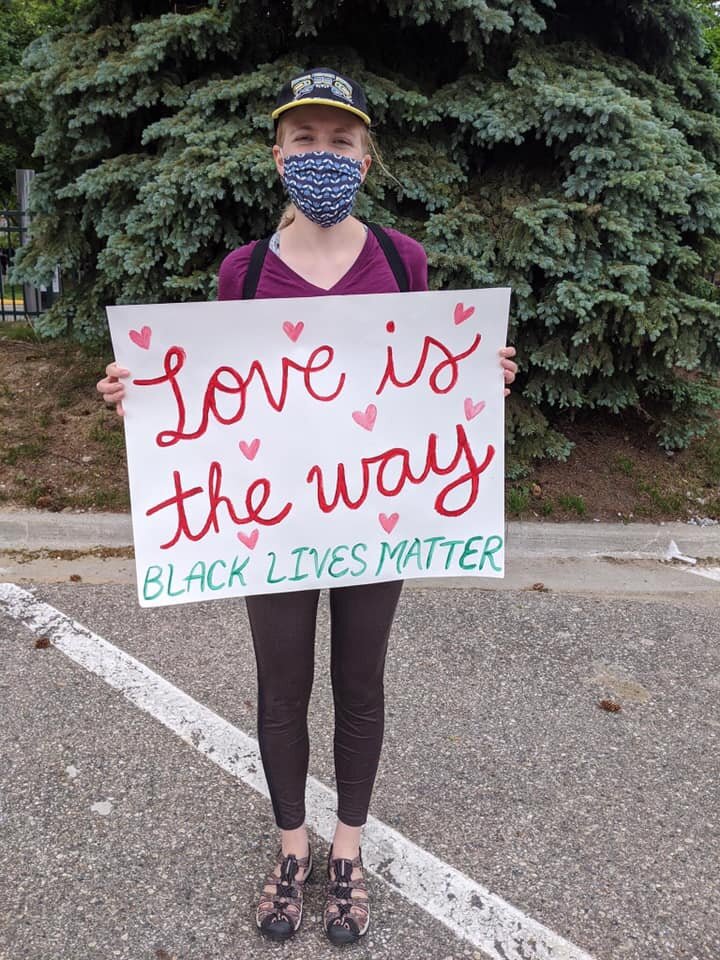
Michigan Collaboration to End Mass Incarceration “With large numbers of people committed to working on ending mass incarceration in Michigan we can make a difference. The Michigan Collaborative to End Mass Incarceration is dedicated to leveraging individual and organizational power to reduce our prison and jail populations in this state.”
Grace Lee Boggs Center Founded by civil rights and equity pioneers Grace Lee Boggs and husband Jimmy Boggs. “Our mission is to nurture the transformational leadership capacities of individuals and organizations committed to creating productive, sustainable, ecologically responsible, and just communities.”
Detroit Equity Action Lab Part of Wayne Law’s Damon J. Keith Center for Civil Rights, the Detroit Equity Action Lab, or DEAL, serves as an innovation hub for 60 nonprofit organizations working in the realm of racial justice. These organizations specialize in everything from the arts and media to health care and housing, among many more topics. Connecting experts through its Racial Equity Fellowship, DEAL also organizes collaborative research and analysis among its partner organizations. A media and communications strategy works to give voice to Detroiters and encourage conversations of racial equity in the media.
Race2Equity An initiative of the Michigan Roundtable for Diversity and Inclusion, an organization that itself has been around since 1941, Race2Equity is a program that takes both a grassroots and a grass-tops (think thought leaders, elected officials, et al.) approach to making equitable change. The Statewide Racial Equity Coalition is what the organization calls an “uncoalition,” which, according to the website, “Breaks down the traditional coalition organizing hierarchy that perpetuates white supremacy and inequity.” They’ve created four Racial Equity Hubs to battle racial inequity, focusing on the communities of Benton Harbor, Detroit, Flint, and the Keweenaw Bay Indian Community of the Upper Peninsula. Healing Stories is the second component of Race2Equity, which provides a venue for those directly impacted by systemic racism to have their voices heard.
SURJ Southeast Michigan The Metro Detroit chapter for Showing Up for Racial Justice, SURJ Southeast Michigan acts to mobilize white people as part of a multiracial front against white supremacy. While the mission is to organize white people to help in the fight for racial justice, people of all races and ethnicities are welcome to join the organization. SURJ organizes people through a network that spans across the country, building relationships and teaching the skills necessary for change. The organization believes in political education to help end white supremacy, with online resources that include classes on Racism 101, White Supremacy Culture, White Feminism, White Privilege, and White Nationalism.
Detroit Jews for Justice Informed by the Jewish tradition, Detroit Jews for Justice fights to end systemic oppression. Recently their core focus has been clean and affordable water issues, but the organization also acts on matters of housing, workers’ rights, voting, and more. The organization has protested in solidarity with groups like Black Lives Matter. In fact, its first act as an organization was a Hannukah vigil following Mike Brown’s murder in Ferguson, Missouri. The organization’s website currently has a page dedicated to #BLM Resources, including works from Black authors and leaders, works for Jewish institutions, and resources for speaking to children about racism.
Greater Rochester Race and Inclusion Network GRAIN is a network of engaged people in the greater Rochester (MI) area working to ensure our community embraces people of different races, ages, political beliefs, economic and educational standings, religions, sexual orientations, gender identities, health statuses, abilities, and cultural backgrounds. We respect the inherent dignity of all people.
Ferndale Inclusion Network A network of people and groups in Ferndale, Michigan, intent on building a more diverse and inclusive community. A Project of Citizens for a Fair Ferndale.
